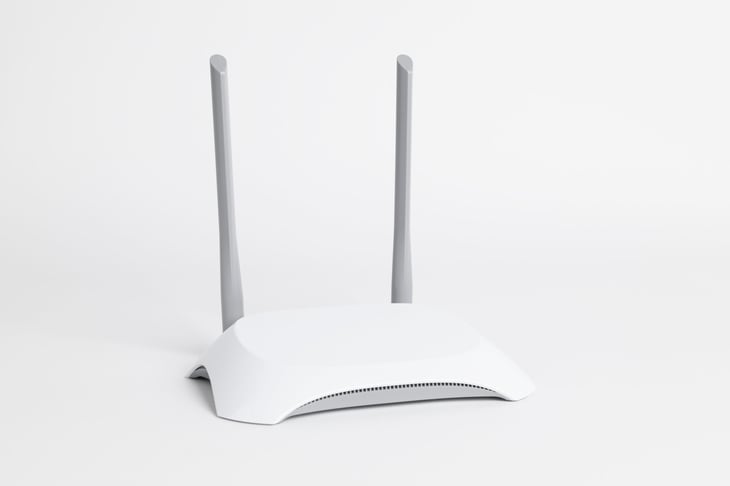
Editor's Note: This story comes from CableTV.com.
Internet has traditionally been a set-it-and-forget-it service, but internet service providers (ISPs) have started to shake up their catalog.
From AT&T to Ziply’s 10G plan, many ISPs have hyped up multi-gigabit internet plans with large download speeds and even larger price tags.
But are these plans worth their jumbo-sized rates? Do you need to upgrade your internet service? Let’s break down the biggest facts about gigabit and multi-gig internet plans.
What is gigabit internet?

Cable internet speeds typically top out at 1Gbps, which is synonymous with gigabit internet. But with fiber internet becoming more widespread, more ISPs have moved beyond gigabit internet with multi-gig internet plans.
Multi-gig internet refers to plans with download and upload speeds exceeding 1Gbps. From AT&T to Ziply Fiber (which has a plan with whopping 10Gbps download speeds), big and small ISPs alike have gotten on the multi-gig internet train.
On paper, it’s easy to see gigabit internet’s value. In the future, households will need faster internet speeds as more people and devices require internet connectivity.
With multi-gigabit internet, you can download data in seconds instead of hours.
Gigabit internet pros and cons

Gigabit and multi-gig internet may be the latest and greatest internet tech, but it’s not without its downsides. Here’s what you need to know if you’re interested in gigabit internet.
What gigabit internet equipment do I need?

Whether you’re getting gigabit or multi-gig internet, you’ll likely need some new hardware to maximize your internet connection.
If you’re a new fiber internet customer, your fiber ISP will install an optical network terminal (ONT) in your home. ONTs are small devices that connect your home to the fiber internet network — they work similarly to a cable internet modem.
Cable internet subscribers with a gigabit internet plan will need a DOCSIS 3.1 gigabit modem that supports gigabit internet speeds.
We’d also recommend upgrading your Wi-Fi router if your current model’s more than a few years old. Wi-Fi 6 and 6E routers offer the best home Wi-Fi performance, and many models are available for under $200.
How much is gigabit internet?

Gigabit and multi-gig internet offer the best internet speeds, but it won’t come cheap.
Gigabit internet prices start at around $100 monthly, and some multi-gig internet plans can exceed the $200 mark.
Popular gigabit internet plans

Here are top gigabit internet plans with price, download speed, and upload speed.
- Verizon Fios Gigabit Connection: $64.99/mo., 940Mbps, 880Mbps
- Xfinity Gigabit Pro: $299.95/mo., 6,000Mbps, 6,000Mbps
- AT&T 5 Gig Internet: $225.00/mo., 5,000Mbps, 5,000Mbps
Is gigabit internet worth it?

For most households, gigabit internet’s high price tag doubles as the answer to this question.
But if you’re still on the fence about gigabit or multi-gig internet, we’d generally recommend it in the following scenarios.
You’re a gamer who regularly downloads games

Video games are larger than ever these days with titles like NBA 2K23 and the Call of Duty series regularly cracking the 100GB mark.
If you’re frequently downloading large games or subscribe to a games service like Xbox Game Pass or PlayStation Plus, you’ll get a lot of value out of a multi-gig internet plan.
Instead of having to leave your console or PC on all day, you can finish a game download in under an hour.
You’re transferring large files for work

Multi-gig internet‘s fast upload speeds can be a boon if you work in an industry where you’re regularly uploading or downloading multi-gigabyte files.
Cable internet’s upload speeds generally top out at a measly 30Mbps, while multi-gig internet can reach speeds of up to 10,000Mbps.
You need more from your internet besides “faster speeds”

Multi-gig internet will be overkill if your biggest internet problems are things like slow Zoom calls or jumpy Netflix videos. Although internet speeds affect your home internet experience, most home users will be fine with internet speeds under 1Gbps.
For example, Netflix only requires a 15Mbps connection for a single 4K video stream.
If you’re experiencing general internet problems, we’d suggest upgrading your home Wi-Fi equipment or internet plan before you spring for a pricey multi-gig internet plan. Check out our slow internet guide for more troubleshooting tips.





Add a Comment
Our Policy: We welcome relevant and respectful comments in order to foster healthy and informative discussions. All other comments may be removed. Comments with links are automatically held for moderation.